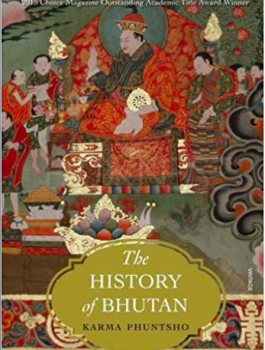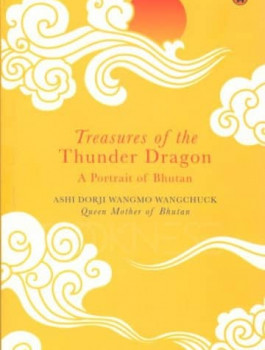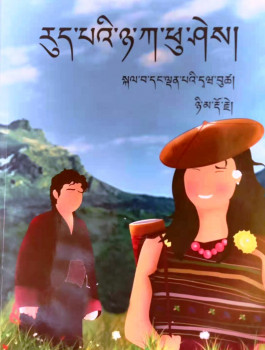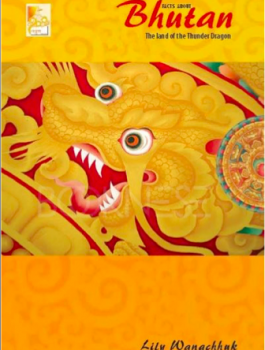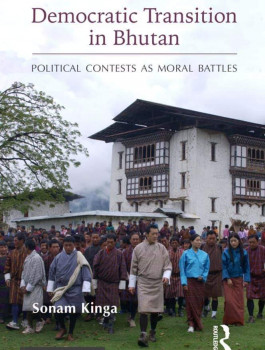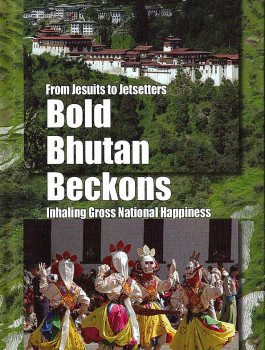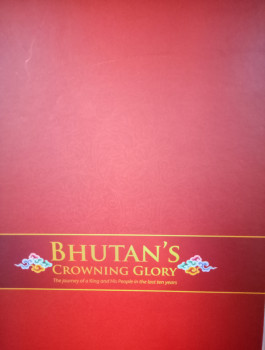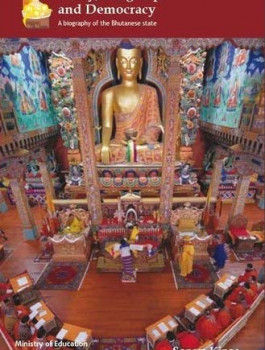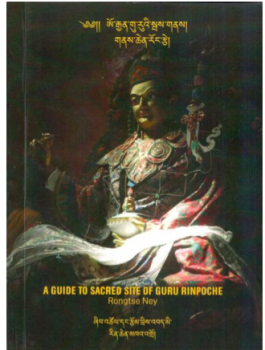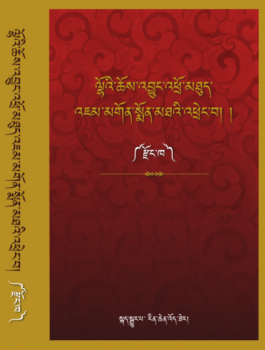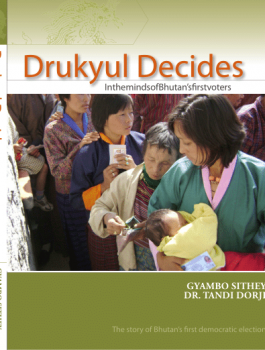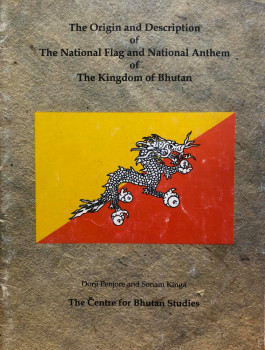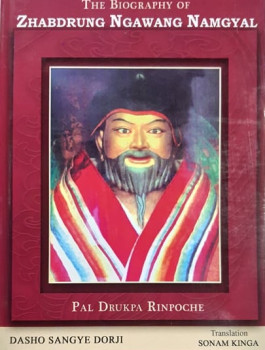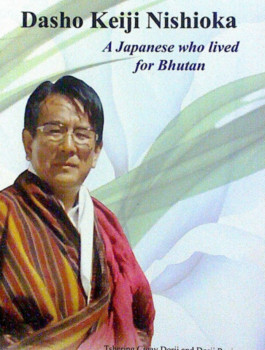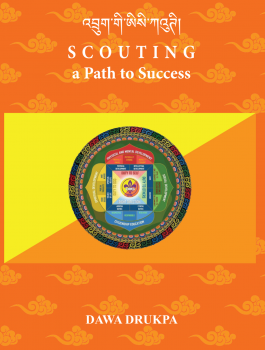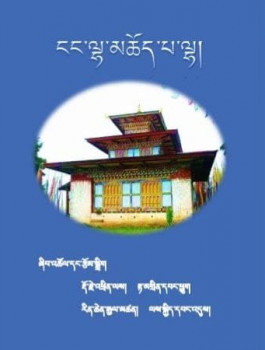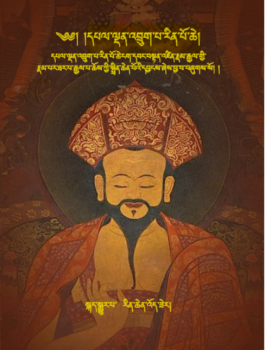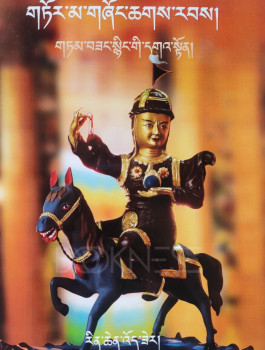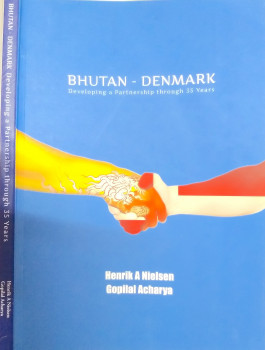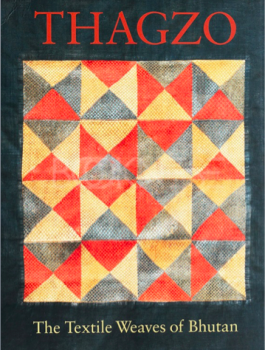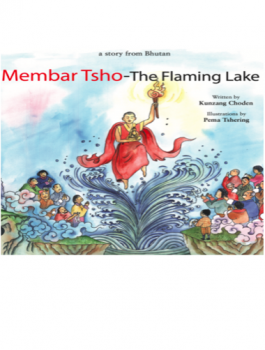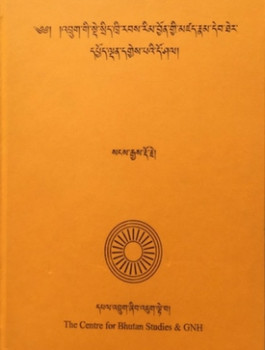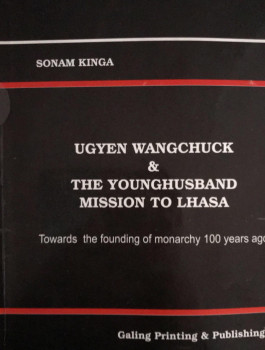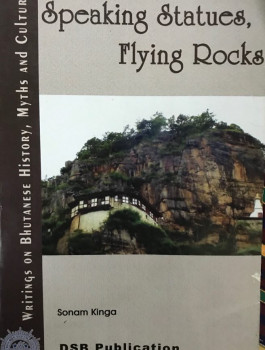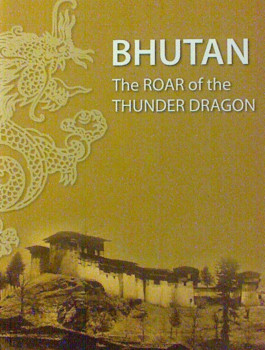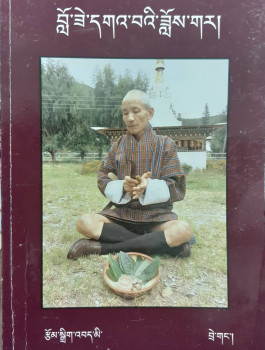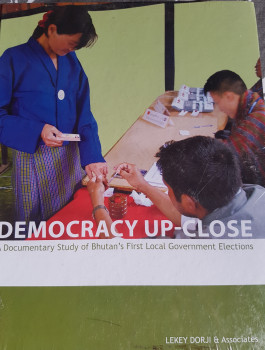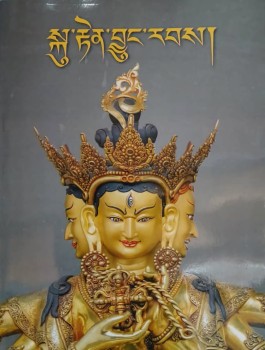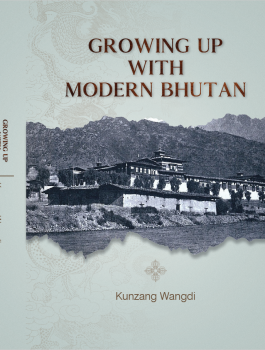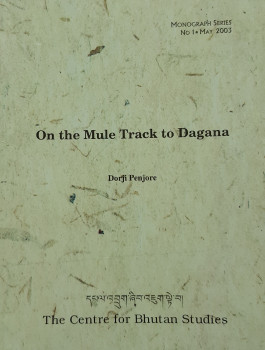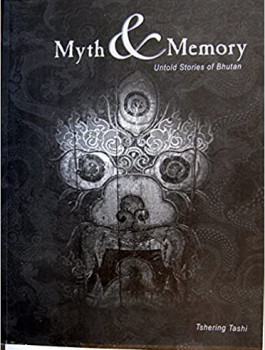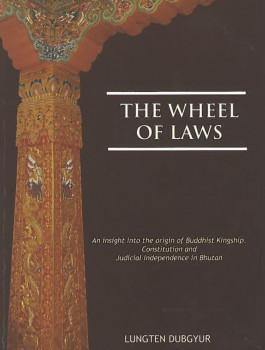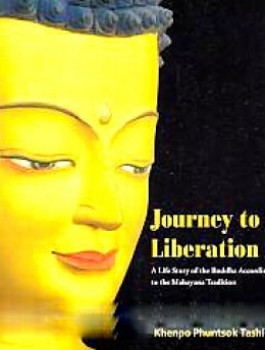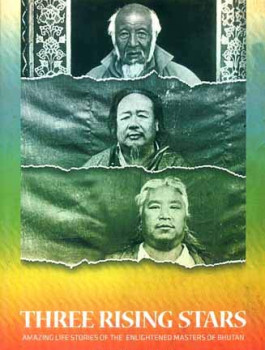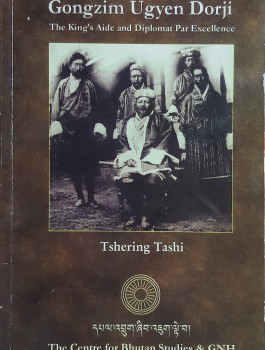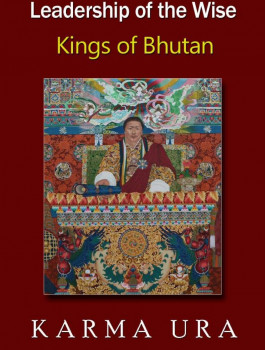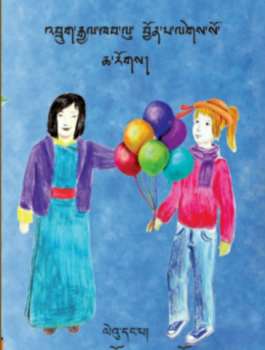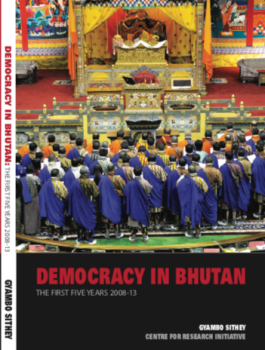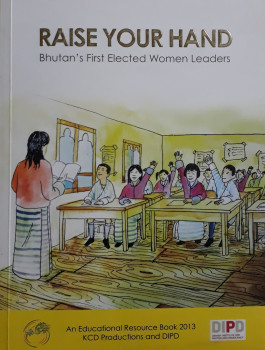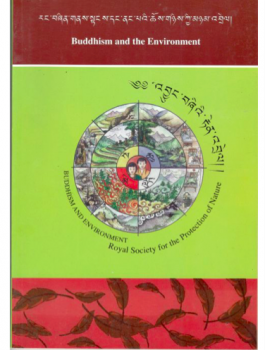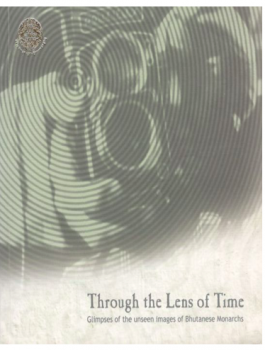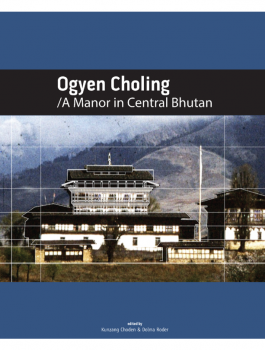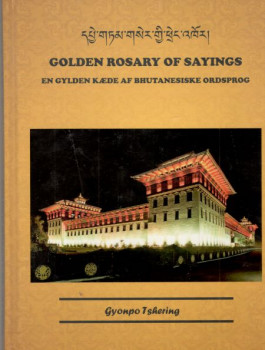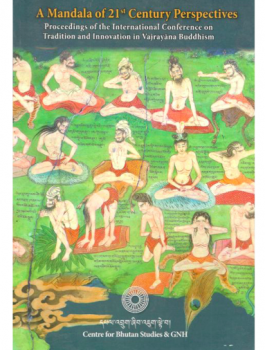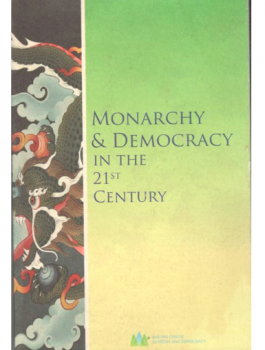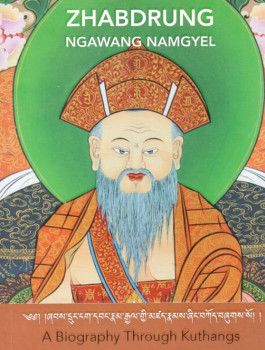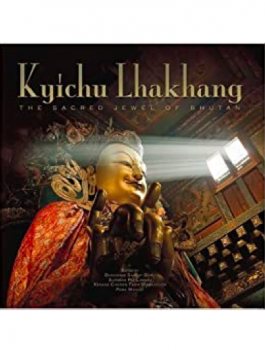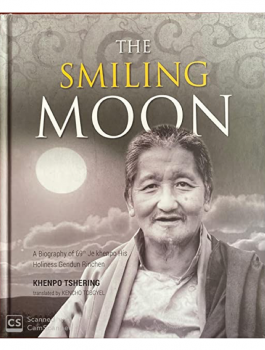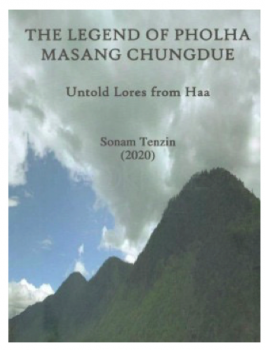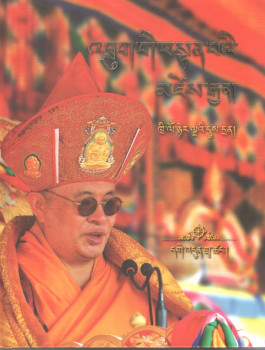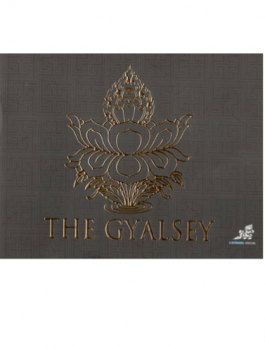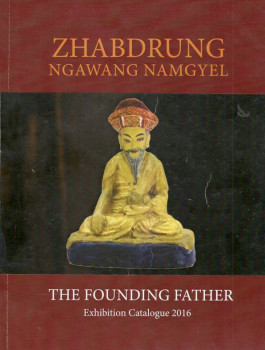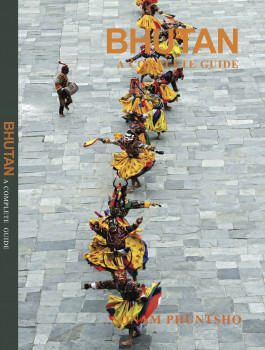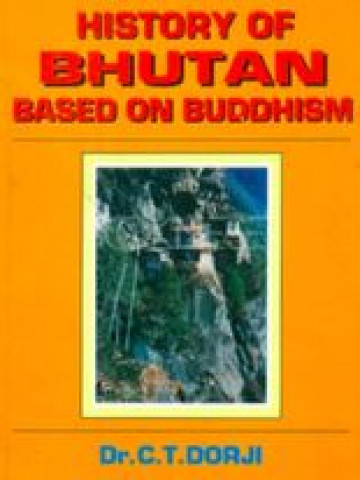
History of Bhutan -Based on Buddhism
- By
- Dr. C.T. Dorji,
| Published In: | 1994 |
|---|---|
| ISBN: | 8186239014 |
| Category: | |
| No. of Pages: | 263 |
Book Overview
Write a Review
Customer Reviews (0)
Books From Related Categories
PaSsu Diary: A Journal of an Ordinary Bhutanese
No. of Pages 316
Nu. 390.00
Nu. 699.00
Nu. 699.00
Nu. 349.00
Treasures of the Thunder Dragon: A Portrait of Bhutan
No. of Pages 218
Nu. 499.00
Nu. 2500.00
Nu. 300.00
Nu. 1250.00
Democratic Transition in Bhutan: Political Contests as Moral Battles
No. of Pages 350
Nu. 1495.00
From Jesuits to Jetsetters - BOLD BHUTAN BECKONS - Inhaling Gross National Happiness
- By
- Tshering Tashi,
No. of Pages 360
Nu. 800.00
Nu. 700.00
Polity, Kingship and Democracy: A Biography Of The Bhutanese State
No. of Pages 382
Nu. 750.00
Nu. 300.00 Nu. 285
ཨྱོན་གུ་རུའི་སྦས་གནས། གནས་ཆེན་རོང་རྩེ། A Guide to Sacred Site of Guru Rinpoche- Rongtse Ney
- By
- Rinchen Khandu,
No. of Pages 96
Nu. 499.00
Nu. 580.00
Nu. 299.00
Nu. 719.00
Medical History of Bhutan - Chronicles of health and disease from Bon times to today
No. of Pages 355
Nu. 1100.00
The Origin and Description of the National Flag and National Anthem of the Kingdom of Bhutan
No. of Pages 44
Nu. 350.00
The Biography of Zhabdrung Ngawang Namgyal
No. of Pages 300
Nu. 480.00
The Successors of Zhabdrung Ngawang Namgyel Hereditary Heirs and Reincarnation
- By
- Riyang Books
No. of Pages 112
Nu. 399.00
Nu. 450.00
Dasho Keiji Nishioka: A Japanese Who Lived for Bhutan
No. of Pages 131
Nu. 450.00
Nu. 349.00
Nu. 370.00
Nu. 799.00
Nu. 0.00
Nu. 775.00 Nu. 697.5
Nu. 450.00
Nu. 1000.00
Nu. 499.00
Nu. 900.00
Nu. 2000.00
Nu. 700.00 Nu. 140
Nu. 700.00
Nu. 400.00
Nu. 1000.00
Nu. 250.00
Nu. 420.00
Nu. 1500.00
Nu. 220.00
Democracy Up-close: a documentary study of Bhutan's first local government elections
No. of Pages 918
Nu. 2000.00
Nu. 0.00
Nu. 1100.00
Nu. 100.00
Nu. 450.00
The Wheel of Laws: An Insight Into the Origin of Buddhist Kingship, Constitution and Judicial Independence in Bhutan
- By
- Lungten Dubgyur,
No. of Pages 154
Nu. 540.00
Journey to Liberation: A Life Story of the Buddha According to the Mahayana Tradition
No. of Pages 246
Nu. 860.00
Nu. 650.00
Nu. 599.00
Nu. 599.00
Nu. 100.00
Nu. 850.00
Nu. 1000.00
Nu. 200.00
Nu. 1200.00
Nu. 1700.00
Nu. 250.00
Nu. 450.00
Nu. 450.00
Monarchy and Democracy in the 21st century
No. of Pages 211
Nu. 950.00
Nu. 1280.00
Nu. 1000.00
Nu. 1500.00
Nu. 349.00
Nu. 1.00
Nu. 350.00
Nu. 1.00
Nu. 500.00
Nu. 899.00


